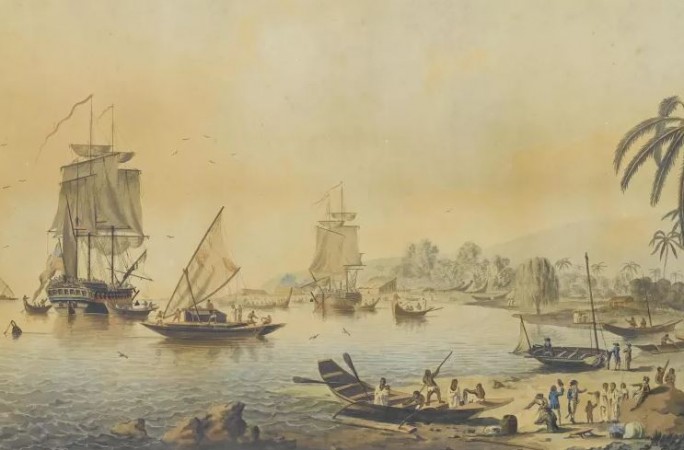
The Age of Exploration, a significant period in history, refers to the era when European powers embarked on extensive voyages of discovery and expansion. Spanning from the late 15th century to the 17th century, these explorations shaped the course of human history and had a profound impact on global trade, culture, and geopolitics.
During this time, European nations were driven by various factors, including the quest for wealth, the desire to spread Christianity, and the thirst for knowledge. These motivations spurred daring explorers to venture into uncharted waters, leading to remarkable discoveries that transformed the world.
Early European Voyages
Portuguese Explorations
The Age of Exploration was inaugurated by Portuguese navigators like Prince Henry the Navigator, who sought a sea route to Asia. Bartolomeu Dias successfully rounded the Cape of Good Hope in 1488, opening the way for future explorations to the Indian Ocean.
Spanish Expeditions
Meanwhile, Spain sponsored significant voyages led by Christopher Columbus. In 1492, he reached the Americas, unintentionally inaugurating a new era of transatlantic encounters.
Exploring New Horizons
Columbus and the Discovery of the Americas
Christopher Columbus's journey to the "New World" in 1492 marked a turning point in world history. It resulted in the Columbian Exchange, a global transfer of goods, ideas, and diseases between Europe, Africa, and the Americas.
Vasco da Gama's Route to India
In 1498, Vasco da Gama successfully reached India, establishing a direct maritime route that bypassed the Silk Road. This discovery facilitated lucrative trade between Europe and Asia.
The Impact on Global History
Columbian Exchange and its Consequences
The Columbian Exchange had a profound impact on the world's ecosystems and cultures. New crops, such as potatoes and tomatoes, transformed diets worldwide, while the introduction of horses revolutionized transportation and warfare.
Cultural Diffusion and Knowledge Transfer
The encounters between different civilizations led to the exchange of knowledge, ideas, and technologies. The transfer of mathematical and scientific knowledge from the Arab world, for example, played a crucial role in the European Renaissance.
Colonization and its Effects on Indigenous Populations
European colonization often led to the displacement, oppression, and exploitation of indigenous populations. The consequences of this colonization continue to shape social and political landscapes in many parts of the world.
The Rise of Maritime Empires
Spanish Empire
Spain's vast territorial holdings in the Americas and Asia contributed to the rise of a global Spanish empire. The wealth and resources acquired from the colonies fueled the expansion of Spanish influence.
Portuguese Empire
Portugal also established a vast empire, encompassing territories in Africa, Asia, and South America. Their early mastery of sea routes allowed them to dominate key trade routes.
Dutch and British Naval Dominance
As the Age of Exploration progressed, the Dutch and British emerged as formidable naval powers. They challenged the Spanish and Portuguese dominance and established their own global trade networks.
Scientific and Technological Advancements
Navigational Tools and Improvements
During the Age of Exploration, navigational tools like the astrolabe and quadrant enabled sailors to determine their latitude, making long-distance sea travel more feasible and accurate.
Cartography and Mapmaking
Advancements in cartography led to more precise maps, helping explorers navigate the seas with greater confidence. Maps became valuable tools for future explorers and traders.
The Age of Exploration and Trade
Spice Trade and its Influence on Global Economics
The spice trade played a crucial role in shaping global economics. The demand for spices from Asia led to the development of extensive trade routes, connecting the East and West.
Triangular Trade and the Slave Trade
The Atlantic triangular trade involved the exchange of goods, including slaves, between Europe, Africa, and the Americas. This exploitative system had far-reaching consequences on African societies and the development of the Americas.
Cultural Exchange and the Renaissance
Exchange of Ideas and Knowledge
The interactions between different cultures spurred an exchange of ideas in various fields, such as science, art, and philosophy. The Renaissance in Europe was heavily influenced by these cross-cultural exchanges.
Art and Literature During the Age of Exploration
The Age of Exploration inspired artists and writers to depict exotic lands and encounters in their works. Masterpieces from this period continue to captivate audiences with their depictions of the unknown.
Explorers and Their Legacies
Magellan's Circumnavigation and its Significance
Ferdinand Magellan's expedition, though he did not survive the journey, became the first known successful circumnavigation of the Earth. This achievement expanded our understanding of the world's geography.
Sir Francis Drake's Contributions
Sir Francis Drake's voyages and raids played a significant role in challenging Spanish dominance and establishing English influence worldwide.
Decline of the Age of Exploration
Causes of Decline
Various factors, including territorial disputes, costly conflicts, and changing economic priorities, contributed to the decline of the Age of Exploration.
Legacy and Lasting Impacts
Despite its eventual decline, the Age of Exploration left a lasting legacy. It expanded the world's knowledge, connected previously isolated societies, and laid the foundations for the modern globalized world.
The Age of Exploration stands as a testament to human curiosity, determination, and ambition. The voyages undertaken by European explorers during this period forever altered the course of history, shaping our modern world in ways that continue to influence us today.
Govt Action Looms for Twitter after Viral Video of Manipur Women Paraded Naked
Manipur Unrest: CM Urges Thorough Probe into Viral Video's Authenticity
Sonia Gandhi Urges PM Modi for Manipur Discussion in Parliament